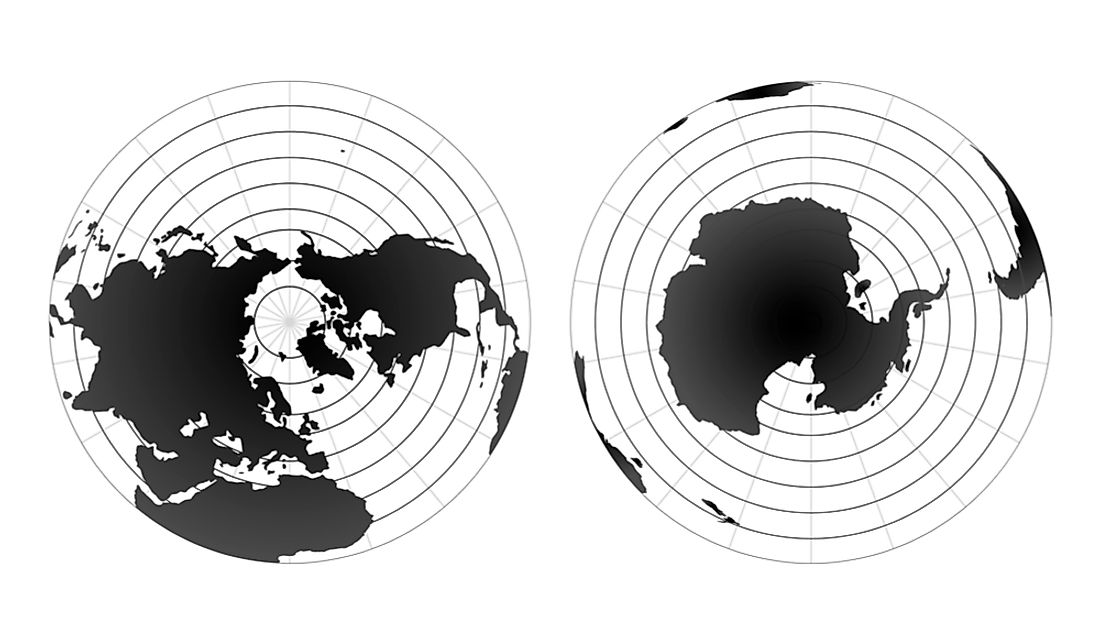What Time Zones Are Used At the North Pole And South Pole?

The North Pole, also known as the Geographic North Pole, is the northernmost point on the globe and is defined as the point in the Northern Hemisphere where the Earth's surface meets its axis of rotation. The South Pole, on the other hand, is the southernmost point on the globe and is the point of intersection between the Earth’s surface and its axis. Therefore, the two poles or points are located directly opposite each other. The North Pole is located in the middle of the Arctic Ocean, while the South Pole is located on the continent of Antarctica. While it is easy to mark the exact point of the South Pole since it is located on land, it is practically impossible to do the same for the North Pole because of shifting sea ice. Due to the location of the North and South Poles, no specific time zone are observed.
What Is a Time Zone?
A time zone can be described as a region of the Earth that observes a standard time for several purposes, including commercial, legal, and social. Time zones often follow the boundaries of a country and its subdivisions since it is convenient for places in close proximity to observe the same time. Time zones on land are usually offset from Coordinated Universal Time (UTC). The Earth’s rotation means that time zones are determined by the lines of longitude that connect the North and South Poles, and divide the globe into different time zones. A country or region may have multiple time zones. For example, the United States is spread across six time zones. However, since all lines of longitude converge at the poles, it means that the poles are technically located within all time zones simultaneously.
Time at the Geographic Poles
In most parts of the globe, lines of longitude determine the local time, such that the specific time is synchronized to the position of the Sun in the sky. However, this does not apply at the North and South Poles, where the rising and setting of the Sun occurs only once a year. At the North Pole, the sun is continuously above the horizon in the summer and below the horizon during winter. The Sun rises during the March equinox and reaches sunset around the September equinox. The South Pole does not receive any sunlight from March until September, while the Sun is continuously above the horizon from September until March, meaning that the pole experiences one of the coldest climates in the world.
How Is Time Determined at the Geographical Poles?
While there are no permanent human settlements at the poles and no specific time zone has been assigned to either pole, explorers and polar expeditions choose to follow any time zone deemed convenient. Therefore, a group of explorers may choose to observe the same time zone as their country of origin or may opt to use Greenwich Mean Time. For example, a group working at the McMurdo Station in the South Pole followed the local time in New Zealand local time (UTC+12 or 13).











